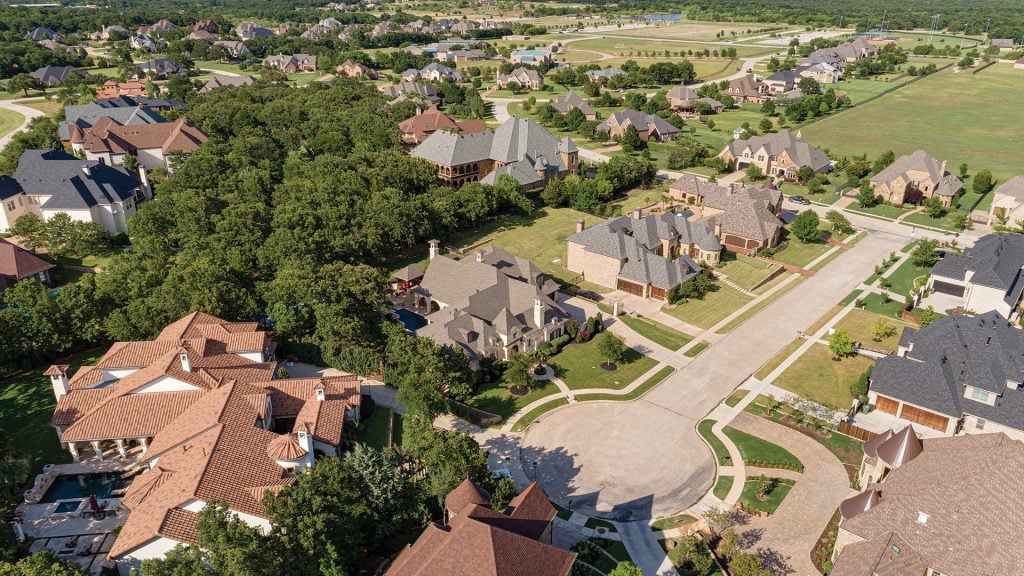Do I Need A Roofing License In Texas?
Do I need a roofing license to work in Texas?

In Texas, a state license is not mandatory for working as a roofer this means anyone can call themselves a roofer and offer their services. However, there are some key points to consider:
- Consumer Protection: Having a license isn’t required by the state, but it demonstrates a commitment to professionalism and industry standards. Choosing a licensed roofer offers peace of mind knowing they have met certain qualifications.
- Roofing Contractors Association of Texas (RCAT): While a state license isn’t mandatory, Texas has a voluntary licensing program through the RCAT. This program involves exams, insurance requirements, and ongoing education, ensuring qualified and knowledgeable roofers.
Here’s a breakdown:
- No mandatory state license: You can legally operate as a roofer in Texas without a state-issued license.
- Consider RCAT licensure: While voluntary, obtaining an RCAT license signifies expertise and adherence to industry standards, making you a more attractive choice for clients.
- Local regulations: While uncommon, some Texas cities might have their own roofing licensing requirements. It’s always best to check with your local municipality for any additional regulations.
Although not mandatory, getting a roofing license in Texas, particularly through the RCAT program, is highly recommended. It demonstrates professionalism, fosters consumer trust, and can potentially give your business a competitive edge.
So I can work on roofs anywhere in Texas without a license?
That’s mostly correct, with a few important distinctions:
- Technically Yes: You can operate as a roofer anywhere in Texas without a state-issued license. There’s no overarching requirement from the Texas Department of Licensing and Regulation (TDLR) for general roofing work.
- Local Exceptions: It’s important to note that some Texas cities or municipalities might have their own licensing requirements for roofers. These local regulations can vary, so it’s crucial to check with your local building department or authority before undertaking any roofing projects to ensure you comply with any additional permits or licenses needed in your specific area.
- Consumer Preference and Safety: While a license isn’t mandatory, having one, particularly through the Roofing Contractors Association of Texas (RCAT), can significantly impact your business. An RCAT license demonstrates your commitment to professional standards, knowledge, and safety practices. This can give you a significant edge when competing for clients who prioritize qualified and insured roofers for their projects.
In essence, while you technically can work on roofs in most of Texas without a state license, focusing on obtaining an RCAT license and any relevant local permits showcases your professionalism and protects your clients. It can ultimately benefit your business and ensure you operate legally within your specific area.
What is an RCAT License?
An RCAT License stands for Roofing Contractors Association of Texas License. It’s not a state-mandated license but a voluntary program offered by the Roofing Contractors Association of Texas (RCAT), a professional organization for roofing contractors in the state.
Here’s a breakdown of what an RCAT License signifies:
- Voluntary Demonstration of Expertise: Unlike a state-issued license, obtaining an RCAT License is not compulsory to work as a roofer in Texas. However, it serves as a way for roofing contractors to voluntarily showcase their commitment to professionalism and industry standards.
- Qualifications and Knowledge: To earn an RCAT License, contractors must undergo a licensing process that includes passing exams and demonstrating knowledge of relevant roofing codes, safety regulations, and best practices. This ensures a baseline level of expertise for RCAT licensees.
- Continuing Education: Maintaining an RCAT License requires ongoing participation in continuing education programs. This ensures that RCAT licensed roofers stay up-to-date with the latest roofing techniques, materials, and regulations.
- Consumer Confidence: For homeowners seeking qualified and insured roofers, the presence of an RCAT License signifies a contractor’s commitment to professionalism and adherence to industry standards. This can give homeowners greater confidence when hiring an RCAT licensed roofer for their roofing projects.
While an RCAT License isn’t mandatory in Texas, it serves as a valuable credential for roofers. It demonstrates a commitment to ongoing education, adherence to industry standards, and ultimately, consumer protection. This can give RCAT licensed roofers a competitive edge in the Texas roofing market.
How do I get an RCAT License?
Acquiring an RCAT License in Texas involves following a specific process established by the Roofing Contractors Association of Texas (RCAT). Here’s a detailed breakdown of the steps involved:
Eligibility Requirements:
Before embarking on the application process, ensure you meet the following criteria:
- Business Experience: You, or the principal of your roofing company, must have been domiciled in Texas and actively involved in the roofing business for at least two continuous years before applying.
- Company Location: Your roofing company must have a fixed address with a physical location within the state of Texas.
The Application Process:
- Gather Required Documents: The RCAT application requires various documents, including:
- Completed and notarized application form.
- Proof of your company’s financial responsibility, which might involve financial statements or a credit report.
- Documentation demonstrating adequate insurance coverage, including liability and worker’s compensation.
- Any other supplementary documents requested by RCAT.
- Submit the Application Package: Once you’ve assembled all the necessary documentation, submit the complete application package to the RCAT office. There’s an application fee associated with the process.
- Pass the Exams: Depending on the type of roofing work you plan to undertake, you’ll need to pass one or more exams administered by RCAT. These exams assess your knowledge of relevant roofing codes, safety regulations, and best practices.
- Basic Business and Safety Knowledge Exam: This mandatory test covers general business practices and safety principles relevant to the roofing industry.
- Residential Roofing Exam or Commercial Roofing Exam (or Both): Choose the exam(s) that correspond to your intended roofing specialization (residential or commercial). You can opt for the Unlimited Roofing License exam, which encompasses both residential and commercial roofing.
- Approval and Issuance: After reviewing your application, verifying your qualifications, and confirming your exam scores, RCAT will issue your official RCAT License.
Maintaining Your RCAT License:
Obtaining the license is just the first step. To maintain your RCAT status in good standing, you’ll need to fulfill ongoing requirements:
- Continuing Education: Every year, RCAT mandates licensees to complete a specific number of Continuing Education Units (CEUs) by attending approved workshops or seminars. This ensures that RCAT licensed roofers stay current with industry developments and best practices.
- Renewal: Your RCAT License has a renewal period. To maintain your active status, you’ll need to submit a renewal application along with the associated fee before the expiration date.
Additional Resources:
For the most up-to-date information and comprehensive details regarding the RCAT License application process, exam content, and renewal procedures, it’s highly recommended to consult the official resources provided by the Roofing Contractors Association of Texas:
- RCAT Licensing Program: https://www.rcat.net/quick-steps-to-get-licensed.html
- Quick Steps to Get Licensed: https://www.rcat.net/quick-steps-to-get-licensed.html
By following these steps and adhering to the ongoing maintenance requirements, you can successfully obtain and maintain your RCAT License, demonstrating your commitment to professionalism and contributing to a higher standard within the Texas roofing industry.
See how much roofing knowledge you have with our NASCLA Contractors Guide to Business Roofing test:
Train for your RCAT License Today
Free Florida Electrician Business Exam
Discover how our Free Florida Electrician Business Exam helps you prepare for the Pearson Vue test and secure your Florida electrical license with ease.
Free OSHA 29 CFR 1926 Exam
Prepare for success with our Free OSHA 29 CFR 1926 Exam practice. Access 90 unique questions, take unlimited tests, and master OSHA regulations for your trade license!
Florida Business and Finance Exam – Fast Practice
With over 600 questions in the practice question bank and only 45 minutes to answer 30 questions, proper preparation is not just beneficial—it’s essential for success.
Florida Business and Finance Exam – Free Practice
Ready to conquer the Florida Business and Finance Exam? Test your knowledge with our free practice assessment that mirrors the actual Pearson Vue exam experience.
Ace Your CAL OSHA Practice Exam with Our Free 400+ Question Bank
California Cal OSHA Supplemental ExamPass your California Trade Exam with Confidence[site_reviews_summary assigned_posts="1162" hide="bars"...
Roofing Construction & Estimating, Revised Free Practice Test
Roofing Construction and Estimating Supplemental ExamPass your Roofing License Exam with Confidence[site_reviews_summary assigned_posts="916"...
NASCLA Contractors Guide To Business and Project Management Free Test
Are you preparing for the NASCLA exam? Our free practice exam, with over 90 questions, helps you test your knowledge of the NASCLA Contractors Guide to Business, Law and Project Management. With 20 questions to answer in 40 minutes, aim for a 70% score to pass. Discover the key highlights of this essential guide and explore other free practice exams like OSHA, Blueprint Reading, and more. Start your exam prep today!
Master the Florida Business and Finance Exam: Prep Guide
Prepare for the Florida Business and Finance Exam with this guide. With insights into key exam topics, proven preparation strategies, and a 600+ question practice test, you’ll be equipped to succeed. Learn what it takes to pass on the first try!
OSHA Free Practice Test
Prepare for trade exams with our Free OSHA Exam! Featuring 20 questions based on OSHA codes for general safety, fall protection, and more, our exam equips you with essential knowledge.





